Posts
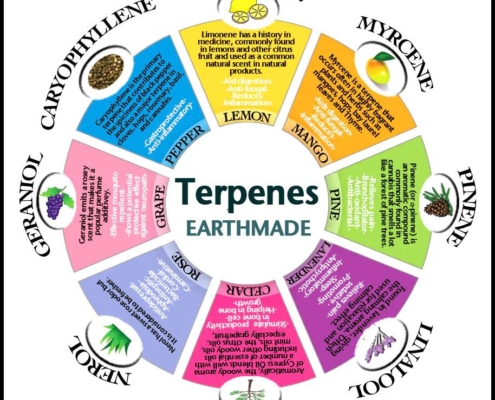
The Role of Terpenes in Natural Fragrances
At the heart of natural scents lie compounds called terpenes. Terpenes are a manifold class of organic compounds produced by a variety of plants, particularly conifers, and are responsible for the distinctive aromas of many herbs and flowers.…
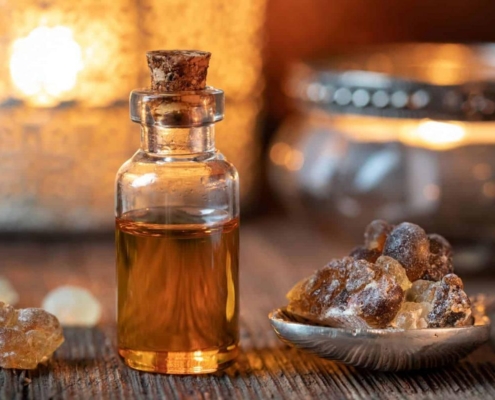
Sacred Scents: Exploring the Spiritual Benefits of Frankincense and Myrrh
Frankincense and Myrrh have a long history of traditional uses for thousands of years, spanning various socio-cultural aspects, including spiritual, religious, cosmetic, and medicinal. Both of them are natural resinous substances, respectively,…
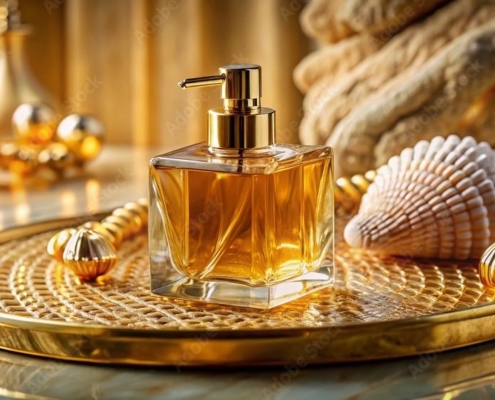
7 Reasons to Turn to Natural Perfumes for a Healthier Scent Experience
In today's world, where we're increasingly aware of what we put on and into our bodies, it's no surprise that natural perfumes are gaining popularity. Traditional perfumes, laden with synthetic chemicals, are slowly being swapped out for their…
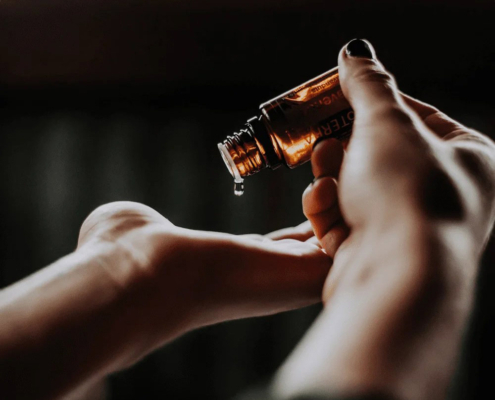
Can You Use Essential Oils on Skin as Perfume?
Essential oils have been prized from ancient civilizations to modern-day wellness enthusiasts for their aromatic properties and therapeutic benefits. By harnessing the natural scents of essential oils, you can create personalized perfumes…
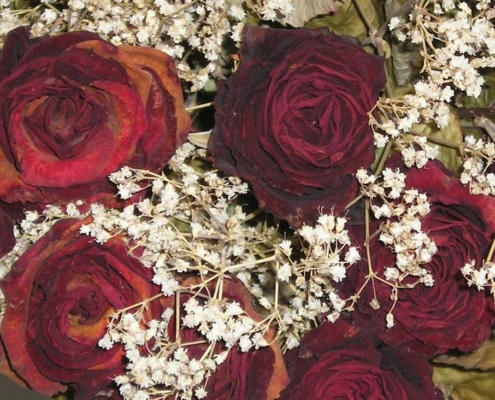
Perfume Aging: How Time Affects Natural Fragrances
Explore how aging influences the scent profile of natural perfumes and get tips for proper storage
Time affects natural fragrances in several ways, including color and scent profile changes, shelf life, climate change, and storage. The chemical…
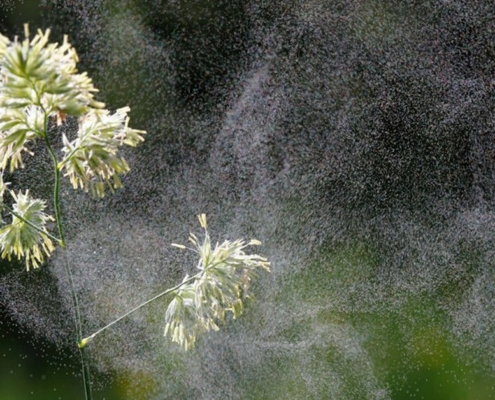
Allergy Relief: Natural Antihistamine Essential Oils
Allergies can be a frustrating and sometimes debilitating condition. They affect millions of people worldwide. The symptoms can range from mild discomfort to severe reactions, whether it is seasonal hay fever, pet dander, mold, or food allergies.…
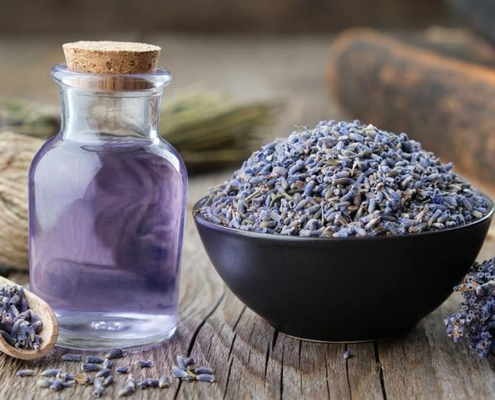
Aromatherapy Arsenal: Essential Oils for Earache
Earache is a common health concern affecting both adults as well as children. Those who have ever experienced it, know how painful they can be. In today’s critical world of drug side effects, many people are turning to natural essential…
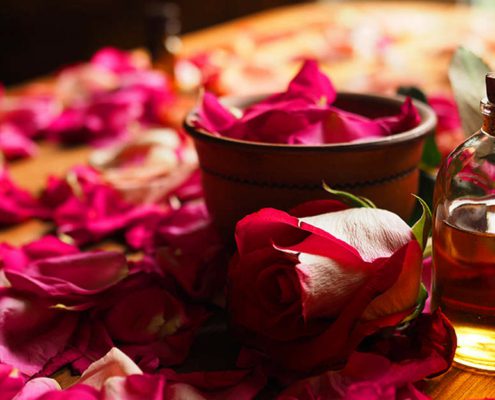
How Rose Essential Oil is Made
Rose essential oil is a luxurious and highly sought-after product, cherished for its enchanting aroma and numerous therapeutic benefits. This article delves into the intricate process of creating rose essential oil, from harvesting the delicate…
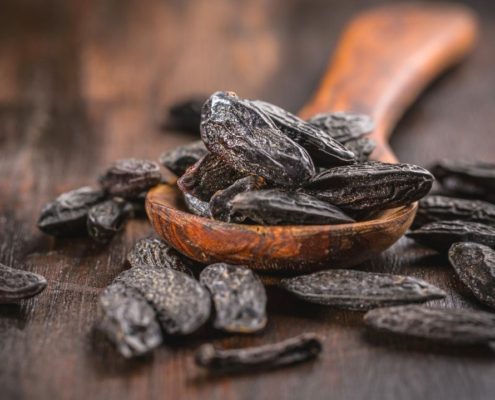
Exploring the Elegance of Tonka Perfume
The Tonka perfume is a captivating and versatile ingredient that has earned its place in the world of perfumery. Its rich, warm, and complex aroma adds depth and sophistication to a wide range of fragrances. Whether you prefer sweet gourmand scents, elegant floral compositions, or bold masculine fragrances, Tonka perfume has something to offer to everyone.
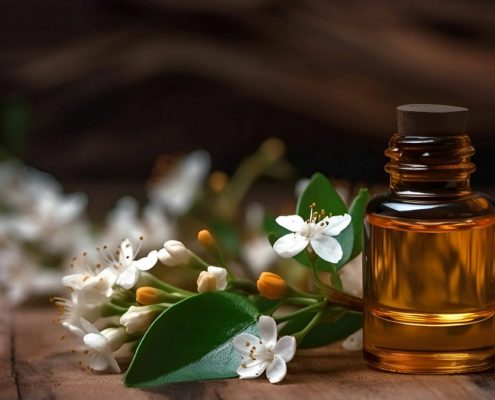
Be Careful with White Musk
White musk is an aromatic ingredient hugely used in commercial perfumes. Most people don’t know what is white musk and what is real musk. But the problem is big companies are promoting this synthetic white musk as pure, authentic, or real musk. This article will explore exactly what it is and why you should be careful with white musk.
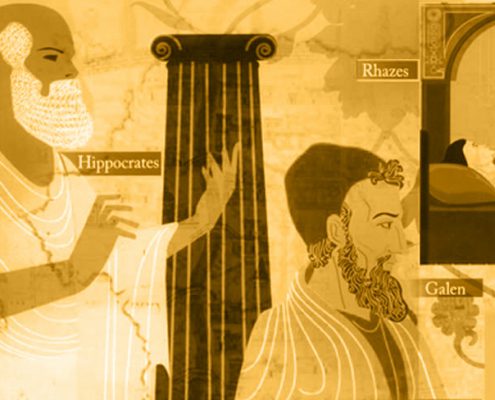
Unani Medicine and Aromatherapy
Aromatherapy is one of the fastest-growing therapies today, being accepted all over the world as a holistic therapeutic approach in complementary and alternative medicine (CAM) that deals with a person’s physical, mental, and emotional well-being…
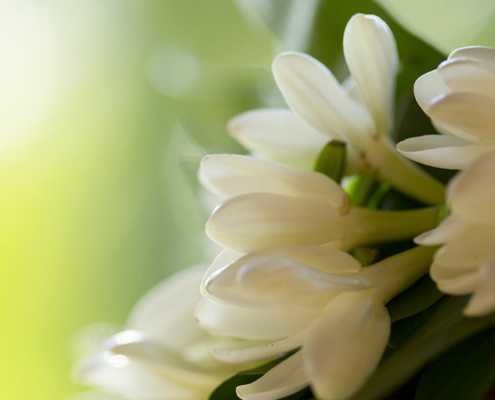
Scents and Hypertension
Can essential oils help lower hypertension? They are known for their calming and hormone-balancing effects. Since stress has a direct or indirect influence on developing high blood pressure, essential oils can benefit hypertension by reducing stress and balancing associated hormones such as cortisol and others. Multiple clinical studies have substantiated the beneficial effects of essential oils in managing hypertension.
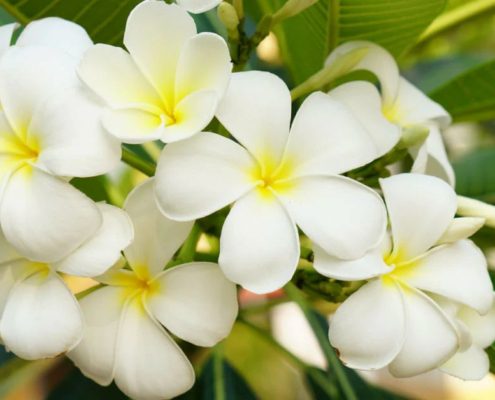
Frangipani Perfume
Frangipani perfumes are best known for their distinguished, sophisticated, creamy, lush, fruity, and rich floral scents. It’s both intoxicating and at the same time soft and sweet. It has an incredible ability to fill the heart with a sweet sensual excitement, making it a perfect scent for awakening the sense of love and romance.
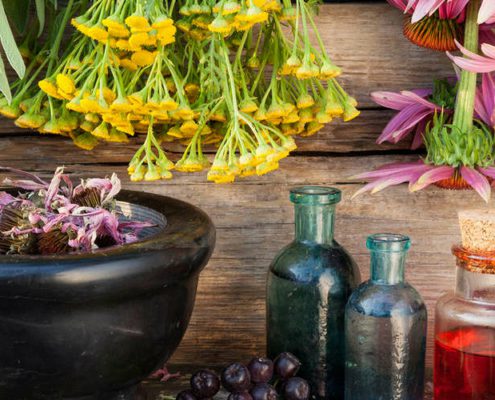
What is Aromatherapy
Aromatherapy refers to the use of aroma from plant compounds, essential oils in particular, for promoting health and well-being, which has been around for millennia. It encompasses several traditional complementary and alternative therapies…
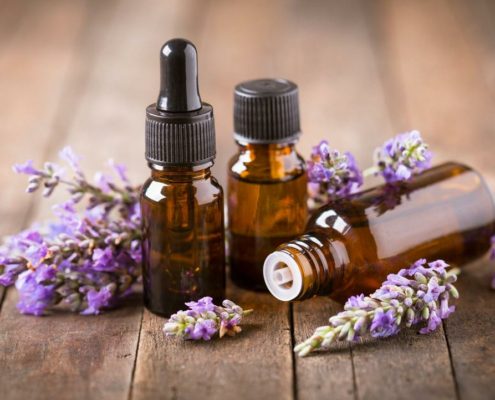
Essential Oils for Flu
Getting the flu or its symptoms every so often isn’t uncommon, particularly during seasonal changes. Flu viruses are continuously evolving, making it harder to treat them at home, and sometimes could be life-threatening. The use of essential…
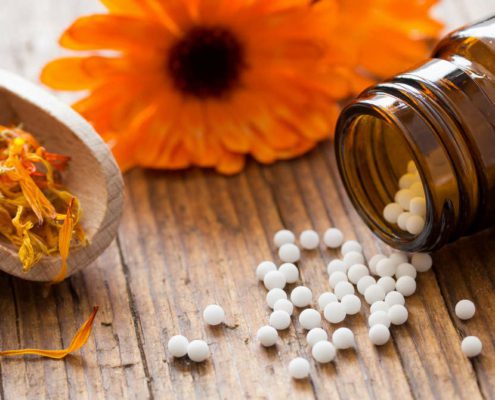
Can Homeopathy and Aromatherapy Be Used Together?
The basic principle in homeopathy is that “like cures like”, which is a concept that the ingredients that cause similar symptoms in healthy people can cure the symptoms in diseased people. This is the reason why, homeopathic practitioners use an ingredient, in tiny doses, which usually causes very similar symptoms in healthy people.
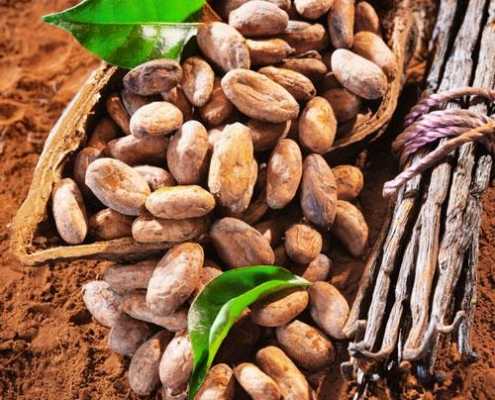
Vanilla Perfume: Properties, Extraction, and History
Vanilla exerts a sweet, warm, creamy, comforting, yet also slightly evocative scent. It represents an intertwined feeling of voraciousness and relaxation that has a distinct complexity of pleasure. It is both fresh as well as nostalgic, relaxing yet invigorating, just like magic in its kind that is universally pleasant and enjoyable.
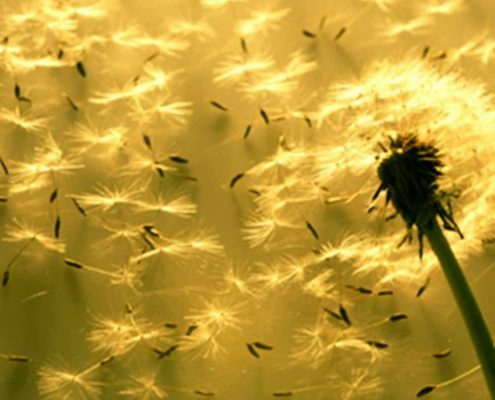
Perfume Allergy: Symptoms, Causes, and Cure
Allergies are considered one of the most common as well as fastest growing chronic conditions worldwide nowadays. A wide variety of symptoms are associated with allergic reactions that may range from simply making you miserable which is easy…
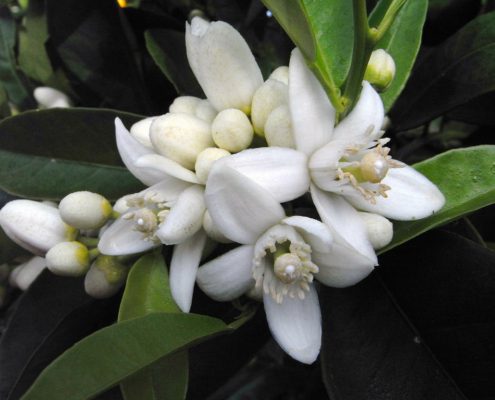
Neroli Perfume – Properties, Distillation, and History
Neroli perfume represents a surprising harmony of citrus and floral with unique hints of spices and honey although delicate, distinctive, and utterly refreshing. Neroli is one of the most widely used ingredients in natural perfumery. It tells a unique story, not only about each person who wears it but also about the long history of perfume.
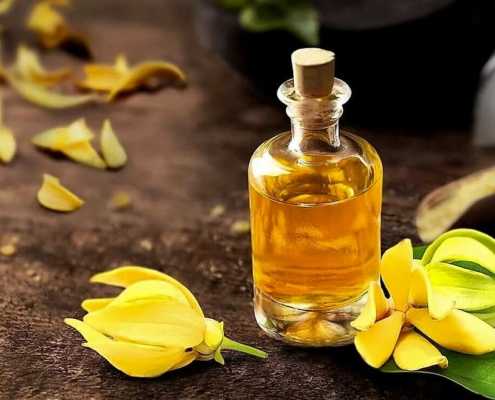
Ylang-ylang – Properties, Distillation, and History
Ylang-ylang oil has strong anti-inflammatory, antifungal, and antibacterial properties. These actions help alleviate fungal infections and symptoms of malaria.
Ylang-ylang has long been used for a range of therapeutic purposes. Modern scientific research has also substantiated many traditional benefits.

Botanical Perfumery
Botanical perfumery is the art of blending fragrance ingredients of botanical origin such as roots, flowers, seeds, resins, and gums to prepare aesthetically pleasing herbal fragrances. In Medieval Europe, fragrant botanical oils became popular for wellbeing and healing, which meant that the professions of physicians or apothecaries and perfumers became closely intertwined.

Essential Oils for Headaches
Essential oils offer a more effective and safer way to get rid of headaches without using medicines that often come with many unpleasant side effects. The best part of essential oils is that they not only reduce the symptoms of headaches but also help to address the underlying root of the issues causing the headache.
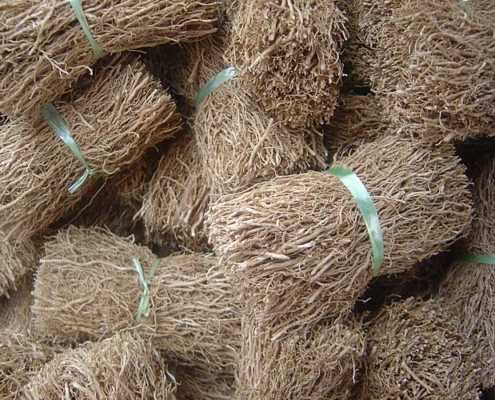
Vetiver Perfume: Properties, Distillation, and History
Vetiver oil acts as a natural antioxidant that may help reduce a wide range of inflammations. It also shows antiseptic actions that can help eliminate and inhibit the growth of invasive bacteria.
The vetiver oil is also used in messages to improve circulation, metabolism, and digestion. It naturally alleviates muscular aches and soothes joint stiffness and pain.
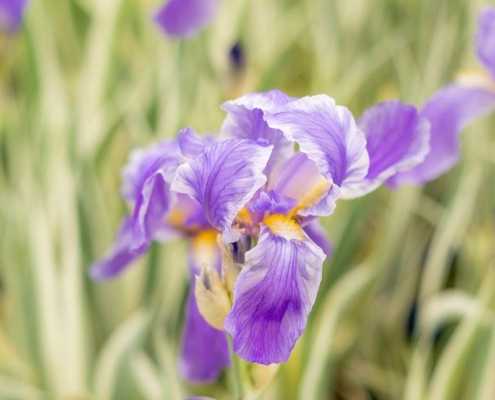
Iris Perfume – Properties, Distillation, and History
Iris perfume, also known as orris perfume, is among the most loved perfume notes for both men as well as women. Iris perfumes are made from iris butter, which is one of those legendary perfumery substances in the world – exclusively beautiful and extraordinarily expensive.
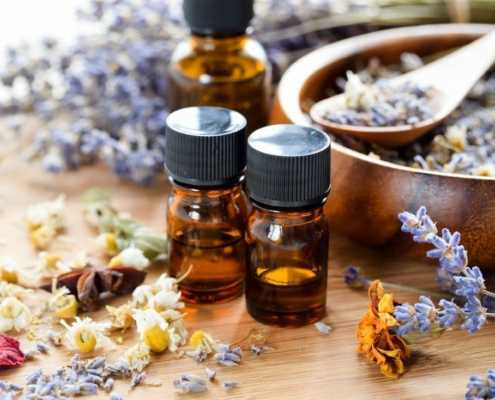
Essential Oils for Infections
Some essential oils have tremendous anti-microbial properties that can heal a large number of infective conditions including ear infections, sinus infections, bladder infections, skin infections, kidney infections, and urinary tract infections among others.
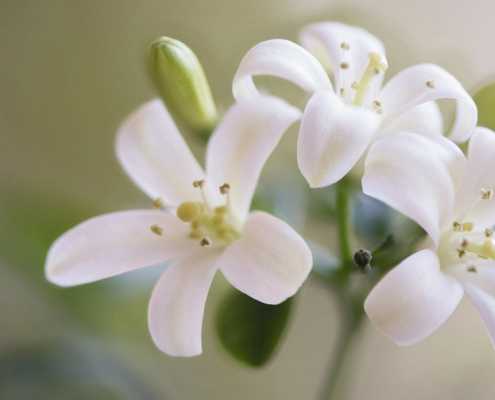
Jasmine Perfume – Properties, Distillation, and History
Jasmine perfume oil has diverse uses and benefits, making it one of the most expensive natural oils in the world. About 1 million flowers are required to produce 1 kg of jasmine absolute. Jasmine, popularly known as "the Queen of the night", helps to maintain emotional balance by promoting euphoric and peaceful feelings.
Jasmine helps to alleviate stress and anxiety without producing any sedative effects. Therefore, it’s also useful in reducing inflammatory conditions caused by emotional stress.

Natural White Musk – Ambrette
Aromatherapy uses: Essential oils derived from the ambrette seeds emanate a wonderful soft musky smell, making it very beneficial in aromatherapy.
The white musk scent of ambrette essential oil has been widely used in aromatherapy for treating anxiety, nervousness, and depression among other emotional imbalances.
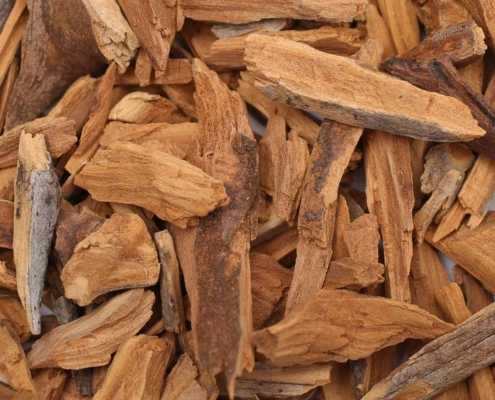
Australian Sandalwood – Properties, Distillation, and History
The Australian Sandalwood is just a little bit wilder and stronger than the Mysore, which is a plus point because the Mysore qualities are fully there. The Australian Sandalwood reflects the smells of Australia's harsher and wilder land, while the Mysore exposes the softness of ancient Indian civilization. However, Australian Sandalwood is an extremely valid choice for the extinct Mysore Sandalwood, a real revivification of the unforgettable bewitching scents.
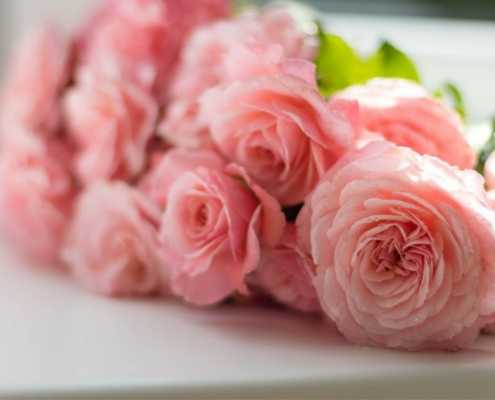
Turkish Rose – Properties, Distillation, and History
The great physician Ibn-al-Sina, commonly known as Avicenna in modern medicine, was the first scientist who emphasized the beneficial effects of rose essence on the heart and the brain. He praised rose water for its effective benefits on the mind and soul, and its tremendous benefits on brain function and cognitive power.
In India, Nur Jahan, Moghul Emperor Jahangir's wife, used to take bath in a pond filled with roses.
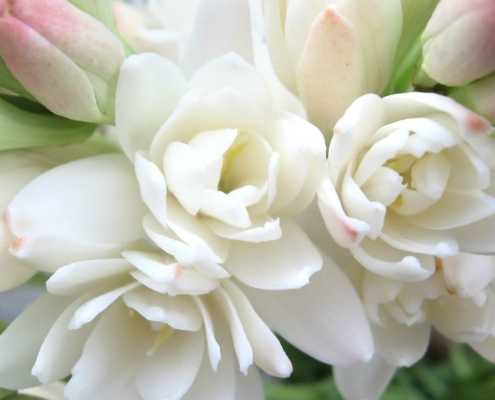
Tuberose Perfumes – Properties, Distillation, and History
During Italian Renaissance, it was prohibited for unmarried girls to walk through Tuberose gardens for their bewitching and erotic power, so they wouldn’t sink into the intoxicating scents of the flowers and men maddened by the bewitching smells. Where jasmine absolutes reveal the joy on the faces, it is said that women who exude the fragrance of Tuberose might cause mimicry recalling orgasm.

Best Essential Oils for Skin
Choosing the best essential oils for skin that can treat and prevent skin-related issues is the most critical part of caring for skin. Taking care of skin isn’t a one-time job, it’s a lifetime practice that you’ll have to bother throughout your life. As every skin type has different sets of issues, understanding what your skin requires is also an important factor to determine the best essential oils for skin.

Anti-Inflammatory Essential Oils
Inflammatory conditions can be treated safely with aromatherapy using certain essential oils. They do not only suppress the symptoms but instead treat the root of the issues.
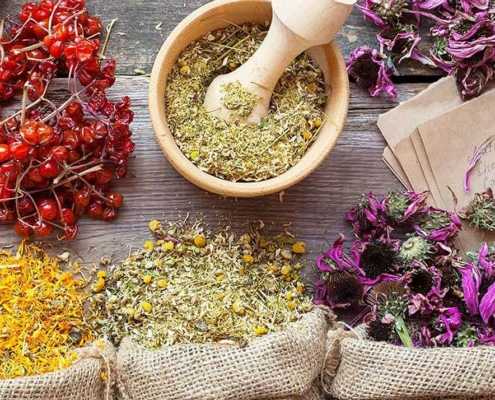
Botanical Extracts in Natural Perfumery
In recent years, with the increasing scenario of health concerns using synthetic fragrances, there has been a shift towards natural perfumes as many people seek safe and natural ingredients in their favorite perfumes. Botanical extracts are natural, safe, and perfect for enhancing the quality of perfumery products.











